| Environmental studies |
Air quality • Emission registers • Reports • Studies • Assessments • Measures
| Clean air planning | |
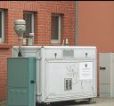 |
In the last twenty years the air quality in Germany could be improved considerably by
clean air planning and the national and
international legislation. This does not mean, that clean air planning is neglectable nowadays, but shows its high potential
for success. With the current EU legislation, which has been transposed into national law, the local authorities are confronted
with new challenges. In the framework of a clear air plan we ascertain the air quality of a defined area by computer simulation
of emissions, immissions and impacts of air pollutants. In case of exceeding limit and precautionary values or ascertaining
impacts we carry out cause analyses and draw up reduction plans.
|
| Regional and national emission registers | |
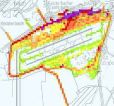
|
Ascertaining of relevant
emissions is an essential part of immission control and air quality management. Significant pollutants
are the primary substances SO2, NO2, NOx, PM10, PB, CO, benzene and the climate influencing CO2, which are listed in the
'daughter' directives of the EU Air Quality Framework Directive. With our own simulation software we are able to carry out
local studies as well as to draw up national emission registers. For the calculation of emissions factors we use the current
handbook 'Emission factors for road transport' (HBEFA, version 2.1).
|
| Air pollution reports | |
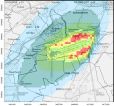 |
Traffic-caused immissions
still contribute significantly to air pollution in our cities. We draft air pollution reports to assess the effects of
changes in land use (e.g.
construction of airports
or industrial areas) and the realisation of road construction projects, whereas we can consider the
traffic-related
sources (road, air, rail and shipping traffic) as well as other polluters (off-road, industrial and biogenous sources).
We supervise the air pollution reports,
drafted in the framework of environmental impact assessments, from mediation to planning approval procedures and from
scoping procedures over processing of objections to dates for argument.
|
| Noise studies | |
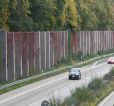 |
Beside the air pollutant loads, caused by existent and planned roads, also the effects on the noise situation along roads are
of substantial interest. We work out emission and immission analyses as well as sound immission and noise reduction plans under
consideration of the current EU legislation. Also sonic studies, which are necessary in the framework of land use planning and
approval procedures, are part of our fields of activity.
|
| Environmental impact assessments | |
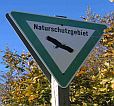 |
Before the decision about the approval of projects with particular importance for the environment their impacts on different
environmental fields have to be scrutinised. Through cooperation with external partners we can also provide studies regarding
the Flora-Fauna-Habitat Directive. Within the framework of regional planning and planning approval procedures we take over the
coordination as experts for environmental impact assessments as well as for the processing of objections and the supervision
of public participation.
|
| Planning of measures | |
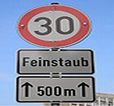 |
In connection with clean air planning the planning of measures is an important instrument for reducing environmental pollution.
For the prevention of future exceedings of limit values the local authorities are required by EU legislation to take measures.
We do not only draw up site specific catalogues of measures, but we also ascertain the specific local and regional air quality
of a single measure or package of measures by model simulations.
|



